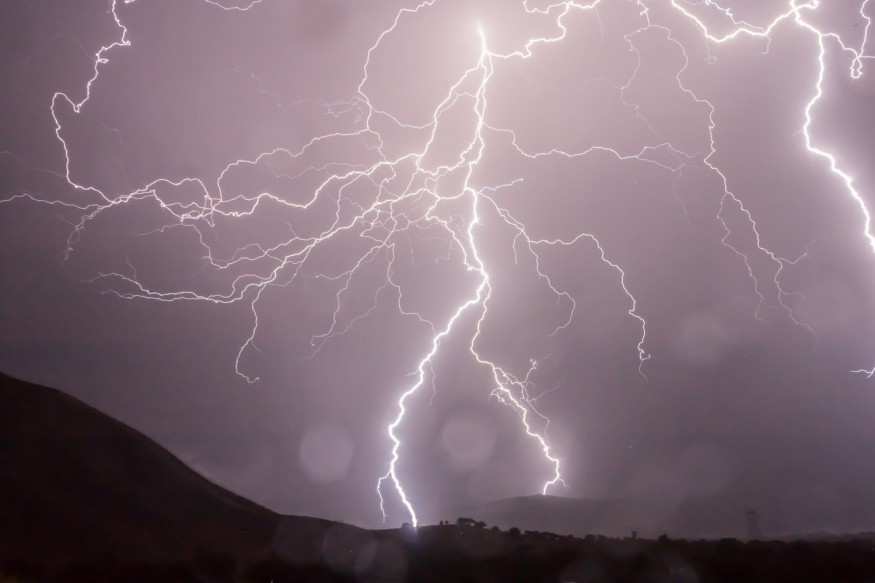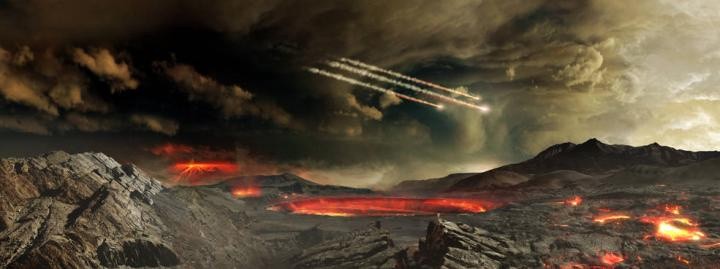According to geologists, lightning strikes were almost as critical as meteorites in providing the ideal conditions for life to arise on Earth.

Minerals brought to Earth in meteorites more than 4 billion years ago have long been regarded as essential ingredients in the evolution of life on our planet.
Scientists claim that billions of lightning bolts carried a small quantity of these minerals to the early Earth.
Related Article: [VIDEO] Birth of Bolt: Footage Shows 0.0003 Second Before Lightning Strikes
Importance of Lightning Strikes

However, University of Leeds researchers have discovered that lightning strikes were almost as important as meteorites in fulfilling this crucial role and causing life to emerge.
They claim that if the atmospheric conditions are correct, life might evolve on Earth-like planets by the same process at any time. Benjamin Hess led the study during his undergraduate studies in the School of Earth and Atmosphere at the University of Leeds.
Mr. Hess and his teachers were gazing at a huge and pure sample of fulgurite, a rock produced as lightning hits the earth. The sample was created when lightning struck a property in Glen Ellyn, Illinois, in 2016 and was donated to Wheaton College's geology department.
The Leeds researchers were originally interested in how fulgurite is produced. Still, they were blown away when they found a significant amount of schreibersite, a particularly peculiar phosphorus mineral, in the Glen Ellyn sample.
Creating the Perfect Atmospheric Conditions

Phosphorus is important for life and is involved in every part of it, from movement to development and reproduction. Phosphorus was found on the early Earth's surface in minerals that did not dissolve in water. However, schreibersite could.
"Many have speculated that life on Earth evolved in shallow surface waters, following Darwin's popular "hot little pond" idea," Mr. Hess, now a Ph.D. student at Yale University in Connecticut, USA, said.
"Most theories on how life began on Earth's surface depend on meteorites containing tiny quantities of schreibersite. The analyzed fulgurite contains a significant amount of schreibersite. According to the findings, " Lightning often hits Earth, suggesting that the phosphorus needed for the emergence of life on the planet's surface is not strictly obtained from meteorite impacts.
"Perhaps more significantly, this suggests that life could form on other Earth-like planets long after meteorite impacts are no longer common."
And Then, There Was Life

When the earth was about 3.5 billion years old, which is around the age of the oldest known microfossils, the team predicts that phosphorus minerals created by lightning strikes exceeded those produced by meteorites, making lightning strikes important emergence of life on the planet.
Furthermore, lightning strikes are much less damaging than meteor strikes, which means they were much less likely to damage life's fragile evolutionary pathways.
Working on the Study
The research, titled Lightning strikes as a significant facilitator of prebiotic phosphorus reduction on early Earth was published in Nature Communications.
The project was sponsored by the School of Earth and Environment as part of a program that allows undergraduates to do experiments using high-end analytical facilities.
Mr. Hess was mentored in the research project by Dr. Jason Harvey, Associate Professor of Geochemistry in Leeds' School of Earth and Climate, and Sandra Piazolo, Professor of Structural Geology Tectonics the School of Earth and Environment.
Dr. Harvey explained: "The early bombardment is a once-in-a-lifetime occurrence in the solar system. As planets grow in mass, the amount of phosphorus delivered by meteors becomes insignificant.
Findings
"Lightning, on the other hand, isn't a one-time occurrence. Elements necessary for the creation of life can be transported to the surface of a planet if atmospheric conditions are favorable for lightning production.
"This could indicate that life could appear on Earth-like planets at any moment."
"Our exciting research opens the door to many future avenues of investigation," Professor Piazolo said. "These include the search for an in-depth analysis of fresh fulgurite in an Early Earth-like environment; in-depth analysis of the effect of flash heating on other minerals to recognize certain features in the rock record; and further analysis of this exceptionally well-preserved fulgurite to identify the range of physical and chemical processes."
"Both of these studies will contribute to a better understanding of the role of fulgurite in modifying Earth's chemical atmosphere over time."
ALSO READ: Mars Dust Particles Equal to Lightning in Earth, Study Finds
For similar news, don't forget to follow Nature World News!
© 2025 NatureWorldNews.com All rights reserved. Do not reproduce without permission.





